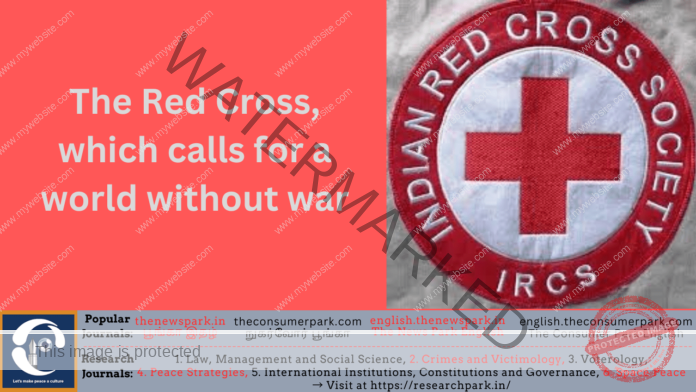Sean Henry Dunant was born on May 8, 1828, in Geneva, the capital of Switzerland. At the age of 26, he was a representative of a trading company in North Africa and Sicily and later served as the head of the Algerian Finance Company. While traveling to meet Napoleon III, the then French king, to request water for the land purchased by the company, he happened to stay in a place called Solferino on June 24, 1959. There, about 40,000 people from both sides were killed in a 15-hour battle between the Austrian and Sardinian forces. There was no one to treat them. Dunant, with the help of the local people, arranged for everyone to receive medical treatment, saying that all the wounded were our brothers.
After returning to Geneva, Dunant often remembered the scenes of the Solferino battlefield. In 1862, he wrote and published the book Solferino Memoirs, emphasizing the need for a separate organization to provide medical care to the wounded in war so that such an event would not happen again on this earth. Impressed by the content of the book, Gustave Meunier, president of the Geneva Public Welfare Society and lawyer, formed a five-member committee, including Dunant, on 7 February 1863 to establish an international organization with these objectives. Thus, was formed the Red Cross.
Dunant, at his own expense, he travelled to many countries to meet with heads of government and representatives and emphasized the need to establish an international humanitarian organization. The conference of this organization, held from 26 to 29 October 1863, was attended by 39 representatives from 16 countries. Thus, the Red Cross Society, which has seven duties: humanity, impartiality, neutrality, independence, charity, unity, and universality, was formed in 1963.
The Swiss government, inspired by the objectives of the 1963 conference, organized an international conference in 1864 on behalf of the Red Cross, in which 12 countries participated. At this conference, the flag of the Red Cross with a red cross on a white background was adopted. Humanitarian assistance to the wounded in wartime was recognized worldwide.
By 1874, the Red Cross had emerged in 22 European countries. In 1876, the Red Cross emblem was engraved on an ambulance that went to rescue the wounded in a war in Turkey. Islamic countries changed the name of the Red Cross to the Red Crescent, saying that the cross symbol was against the feelings of their religion. Thus, from 1864 to 1914, the Red Cross and Red Crescent organizations continued to perform their services wherever there was war in the world. In 1922, during the war in Czechoslovakia, the Red Cross requested a three-day ceasefire for Easter. The both parties agreed for the same.
In 1948, it was decided to celebrate May 8, the birthday of Saint Henry Dunant, who founded the Red Cross, as Red Cross and Red Crescent Day, and the world celebrates Red Cross Day on May 8 every year. Currently, the organization has also taken on the responsibility of tracing missing persons on the battlefield. All countries have agreed that the governments involved should provide the Red Cross with information about wounded and prisoners of war, and that the Red Cross should provide them with the necessary humanitarian assistance.
The organization is responsible for tracing missing persons and reconnecting them with their families, and it is implementing an open letter exchange for prisoners of war to contact their families. In addition, the work of this society was appreciated by everyone during many natural disasters and epidemics that occurred in the world.
During the First World War, the British Red Cross Society and the St. John Ambulance Society jointly provided treatment to the injured soldiers without any discrimination of race, religion or language. This was coordinated by Sir Claude Hill, who was then a member of the Viceroy’s Council. After the end of the First World War, the Indian Red Cross Society was formed by an Act of Parliament passed on 17 March 1920.


